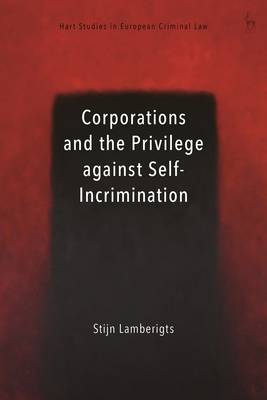
- Afhalen na 1 uur in een winkel met voorraad
- Gratis thuislevering in België vanaf € 30
- Ruim aanbod met 7 miljoen producten
- Afhalen na 1 uur in een winkel met voorraad
- Gratis thuislevering in België vanaf € 30
- Ruim aanbod met 7 miljoen producten
Zoeken
Omschrijving
This book asks whether the well-established privilege against self-incrimination applies to corporations, whether it should, and if so, to what extent. Those questions have an increasingly important EU criminal law dimension. To answer them, this study draws on comparative insights from Belgium, England and Wales, and the US; as well as case law of the ECtHR and EU Law. It covers the established CJEU case law in competition cases, the recent CJEU ruling in DB v Consob and addresses Directive (EU) 2016/343. It will appeal to scholars of EU criminal law, but also to white-collar and competition practitioners.
Specificaties
Betrokkenen
- Auteur(s):
- Uitgeverij:
Inhoud
- Aantal bladzijden:
- 304
- Taal:
- Engels
- Reeks:
Eigenschappen
- Productcode (EAN):
- 9781509953318
- Verschijningsdatum:
- 29/12/2022
- Uitvoering:
- Hardcover
- Formaat:
- Genaaid
- Afmetingen:
- 156 mm x 234 mm
- Gewicht:
- 603 g

Alleen bij Standaard Boekhandel
+ 390 punten op je klantenkaart van Standaard Boekhandel
Beoordelingen
We publiceren alleen reviews die voldoen aan de voorwaarden voor reviews. Bekijk onze voorwaarden voor reviews.











